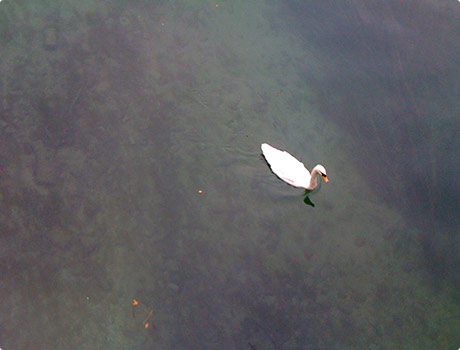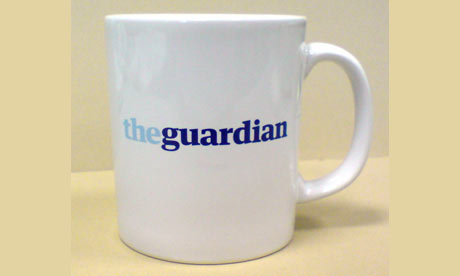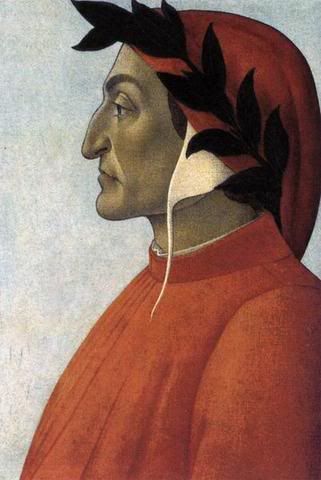It seems a good time to kickstart this blog back in to existence with some rather good news. I'm proud to announce that 4th Estate, Harper Collins with be publishing my next novel VULGAR THINGS early next year (2014): Essex odyssey for 4th Estate.
*
SPONGE!
""A story assembled from everyday objects, unassumingly and quietly, that stuns and horrifies by increments...The Canal may look, at first glance, like a love story, but it harnesses the power of parable." John Wray, author of Lowboy.
Search This Blog
Sunday 21 April 2013
Thursday 21 July 2011
Start Again . . .

Hullo, I've decided to start blogging again. I have no idea why. To celebrate here's me reading from The Canal over at InDigest Magazine.
Wednesday 22 December 2010
New Stuff . . .
Hullo, I've not been on here for a while (for myriad reasons), but shortly I will be posting a whole wealth of new stuff. I've mainly been trying to finish my next novel 'Amber' (which should be done and dusted by the end of Jan). Other than that I've just been hanging around with my two cats and writing bits and bobs for newspapers.
So, like I just said, I'll be posting some new stuff on here pretty shortly. In the meantime watch this (check out the pylons at the beginning):
*
So, like I just said, I'll be posting some new stuff on here pretty shortly. In the meantime watch this (check out the pylons at the beginning):
*
Saturday 2 October 2010
Brutal Myth . . .
 I hope this clears up a few things: it's not the symbolic beauty of the swan I find remotely interesting, it's the return of the image of the swan back to butal, violent myth that interests me:
I hope this clears up a few things: it's not the symbolic beauty of the swan I find remotely interesting, it's the return of the image of the swan back to butal, violent myth that interests me:Bookslut: Swans form an important piece of imagery in this novel. Can you talk about the role they play in your book?
Lee Rourke: Oh, I love swans so much. When I see a swan on the Regent’s canal in London it’s quite hard for me not to be affected by the stark juxtaposition of beauty and environment, I mean they are just brilliantly, beautiful creatures and I always want to say to them: what are you doing here? Why here? Of all the places for you to live your life, why the Regent’s canal?
But seriously, swans figure symbolically throughout the novel. I am interested in the myth of Leda and the Swan in its various interpretations (there is much Greek myth interwoven within the structure of The Canal, for instance and returning to your earlier question, if I was to give the woman in The Canal a name it would have to be Cassandra). Apart from the beauty of the swan and Leda’s naked form portrayed in the Hellenistic Reliefs, or da Vinci’s paintings, it is a rather brutal myth, and one that forewarns a major catastrophe (catastrophe is something that hangs above The Canal like a phantasm). Leda was Tyndareus’s wife, a Spartan king, although this was never enough. There was always the suspicion that Leda wanted to transcend this position. When Zeus, in the guise of a swan commits his despicable act upon Leda, she is yielded by him four eggs and is given god-like status. She gives birth to Castor, Polydeukes, Clytemnestra and most importantly Helen. An act of violence, not only rape, but fratricide (many Reliefs depict the siblings attacking each other), begets the bigger catastrophe: the act of genocide committed in the Trojan war. I am interested in Yeats’s reading of this myth in his poem "Leda and the Swan" -- it is a poem that underpins the whole of my writing of The Canal. Yeats’s poem can be read as a completion of image, taking in and re-processing the various iterations of this myth over many epochs. Yeats takes the image back to antiquity, back to the myth. In "Leda and the Swan" Yeats says: "A shudder in the loins engenders there / The broken wall, the burning roof and tower / And Agamemnon dead." Not only is he returning the image back to violence, but also back to myth -- where it belongs -- away from beauty and form.
I wanted to repeat this completion of image in my own iteration of Leda and the Swan as myth within The Canal. There is a sense of the unknown in The Canal, a sense that the actions inside the novel are a signal to an impending catastrophe. The woman is fully aware of this; she forewarns the man right at the beginning when they first meet. It takes the man right up until the dramatic conclusion to work out exactly what it is she means. Like Cassandra she is misunderstood, or more directly he refuses to believe what it is she is saying. Yet, there is always something to reveal. In messing around with this myth in The Canal I am hoping to reveal to the reader a mythical past that is our continual present.
[read more]
*
Labels:
Leda and the Swan,
Myth,
Regent's Canal,
Swans,
The Canal,
Yeats
Wednesday 1 September 2010
Booker (not) . . .
 It's time for The Guardian's 'Not the Booker Prize' again and it looks like a few people have nominated The Canal. I can't thank people enough for this. I'll be interesting to see who makes it on to the short list.
It's time for The Guardian's 'Not the Booker Prize' again and it looks like a few people have nominated The Canal. I can't thank people enough for this. I'll be interesting to see who makes it on to the short list. "This year, the fun of complaining about the Man Booker prize has been rather spoiled by the fact that the judging panel appears to have compiled a pretty strong longlist. Disappointingly, nearly all the books appear to be interesting – and at least two on the list – The Slap and Room – are even proving excitingly divisive and controversial.
The talk hasn't been so much about dull worthiness and yet more Irish dolour and north London angst as about abuse, tangled race issues and outrage. Oh, yes – and pleasure that some fine authors are getting recognition. As ever, there's been plenty of comment about notable omissions – but this year, most of it has related to Ian McEwan and Martin Amis, and few are claiming that the current novels from the web's favourite whipping boys have suffered an injustice."
My money is on 'Even The Dogs' by Jon McGregor.
*
Tuesday 31 August 2010
Logical Positivism . . .
 I stumbled across Ned Beauman’s (author of the highly entertaining Boxer, Beetle) musings on Heidegger’s Being and Time the other day. Although his approach/reading stems from a rather conservative, logical and staid comfort zone I still found it interesting in its honesty and I’ve always admired people who can form an opinion with conviction and vim. But, it’s still the same old logical positivist’s argument, something I’ve often found to be quite stationary. I like things – including nothing – to be a little bit more malleable, you know.
I stumbled across Ned Beauman’s (author of the highly entertaining Boxer, Beetle) musings on Heidegger’s Being and Time the other day. Although his approach/reading stems from a rather conservative, logical and staid comfort zone I still found it interesting in its honesty and I’ve always admired people who can form an opinion with conviction and vim. But, it’s still the same old logical positivist’s argument, something I’ve often found to be quite stationary. I like things – including nothing – to be a little bit more malleable, you know.But that’s by the by, and down to personal opinion. No, the thing that rankled - which is nothing to do with Ned Beauman himself - is this:
“1. I've always disliked Beckett. Then someone told me that to understand Beckett, you have to read Being and Time. So I read Being and Time. Then I read some more Beckett. I still dislike Beckett. But I'm glad I read Being and Time. (There is no primary evidence, by the way, that Beckett himself had any interest in Heidegger.)”
I beg your pardon? Did I read that correctly? I know reading him requires a certain mode of patience but if you really want to understand Samuel Beckett then read, read, read Dante Alighieri. Forget Heidegger immediately. Everything you need to know about Samuel Beckett is right there in The Divine Comedy.
I thought everyone knew that?
Update: Actually, if anyone is interested, some of the best writing on Beckett can be found in Simon Critchley's 'Very Little . . . Almost Nothing'.
*
Friday 27 August 2010
Ann Quin . . .

The Independent have published my 'Book of a Lifetime' - it's Ann Quin's 'Berg', which if you haven't read, I suggest you give a try. It's simply wonderful. It's also a peek at what the British novel could have been.
*
Subscribe to:
Posts (Atom)
Blog Archive
Labels
2014
(1)
3:AM Magazine
(1)
3AM Magazine
(1)
4th Estate
(1)
aircraft
(1)
Amber
(1)
Andrew Gallix
(2)
Ann Quin
(2)
Art
(1)
Ben Myers
(2)
Book covers
(1)
Book Launch
(2)
Booker Prize
(1)
Bookforum
(1)
Boredom
(1)
Bram van Velde
(1)
Brighton
(1)
Broadway Books
(1)
Captain Beefheart
(1)
Carcanet Press
(2)
Central Station Design
(1)
Chris Killen
(1)
Competition
(1)
Dalkey Archive
(4)
Dante
(1)
Death
(1)
Dumitru Tsepeneag
(1)
Ellis Sharp
(1)
Events
(1)
Everyday Publishing
(1)
Evie Wyld
(2)
Gabriel Josipovici
(5)
Gavin James Bower
(1)
Georges Bataille
(1)
Gwendoline Riley
(1)
Hans Fallada
(1)
Harper Collins.
(1)
Hendrik Wittkopf
(1)
HP Tinker
(1)
Hubert Selby Jr
(1)
INS
(1)
Interviews
(1)
Jacques Roubaud
(1)
JD Salinger
(1)
Jean-Philippe Toussaint
(4)
JG Ballard
(1)
Jim Carroll
(1)
Joe Stretch
(1)
Jon McGregor
(2)
Jonathan Lethem
(1)
Karen Jackson
(1)
Kevin Cummins
(1)
Leda and the Swan
(1)
Light Boxes
(1)
List
(2)
Litro
(1)
LRB
(1)
Lydie Salvayre
(2)
Manchester United
(1)
Manifestos
(1)
Marion Boyars
(1)
Martin Heidegger
(1)
Melville House
(11)
Modernism
(1)
Myth
(1)
New Statesman
(1)
New Stuff
(1)
New York Times
(1)
Nick Cave
(1)
Noah Cicero
(1)
Not The Booker Prize
(1)
Novel
(1)
Olivier Pauvert
(1)
On Boredom
(1)
Pylons
(2)
Readings
(2)
Regent's Canal
(2)
Reviews/Criticism Archives
(9)
RIP
(1)
Samuel Beckett
(3)
Shane Jones
(1)
Sophie Lewis
(1)
Steve Finbow
(2)
Steve Mitchelmore
(2)
Stewart Home
(1)
Stuart Evers
(1)
Swans
(1)
Tao Lin
(3)
The Big Green Bookshop
(1)
The Canal
(15)
The Divine Comedy
(1)
The Failure Six
(1)
The Guardian
(2)
The Independent
(6)
The Quarterly Conversation
(1)
This Space
(1)
To Hell With Publishing
(2)
Tom McCarthy
(3)
Tony O'Neill
(2)
vapour trails
(1)
Vulgar Things
(1)
Yale University Press
(1)
Yeats
(1)
Zachary German
(1)
